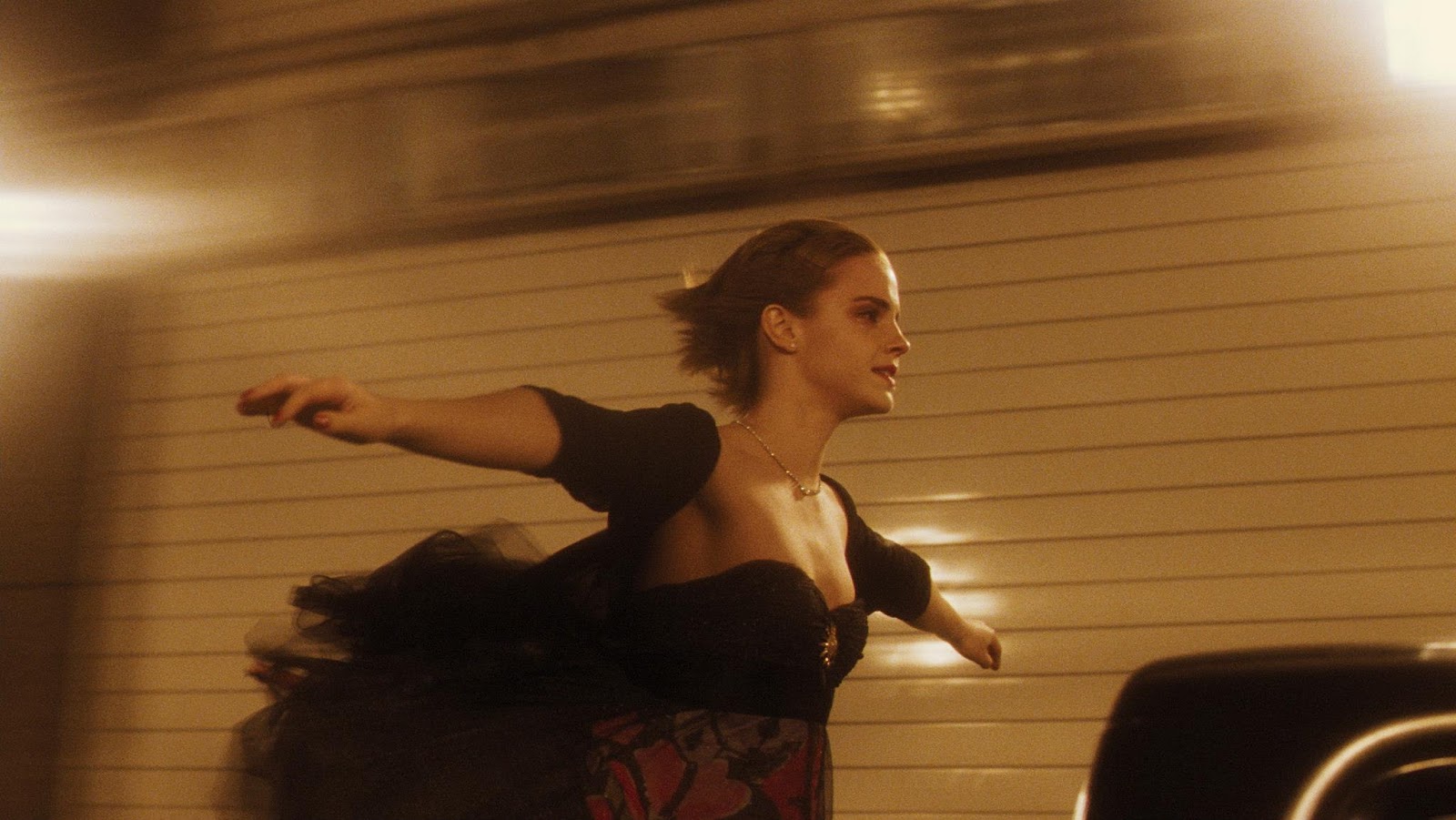Where are the stereotypes? The Perks of Being a Wallflower modernizes the high school film through wallflowers: outsiders that are ok with that fact. Book/Movie Writer and Director Stephen Chbosky makes sure there are no misinterpretations of his book, and his cinematic interpretation is one of the better showcases of high school life since probably Freaks and Geeks.
Charlie (Logan Lerman) is willingly different; as a high school freshmen, he sees conformity as a facade. Charlie willingly keeps his thoughts secret from others until a few exceptional people encourage him to do so. One person is his English teacher Mr. Anderson (Paul Rudd), who gives Charlie additional reading assignments to encourage his writing, and seniors Patrick (Ezra Miller) and Sam (Emma Watson), who hear of Charlie’s dark past and take him in as one of their own. Charlie enters the world of the wallflowers, and learns about love and honesty and their connection to history and time.
The Perks of Being a Wallflower miraculously walks the line between emerging from and embracing high school stereotypes, much like where more progressive high schools are at today. Yes these kids are outsiders, but unlike past films, some are big football fans, smart, not smart, rich, artsy: in short, they share traits of the popular kids without conforming to a particular role. I had friends in school that knew how to walk the line between various cliques and were loved by all in the school; Patrick made me instantly think of those people. In addition, the outsiders themselves, because of their placement in the high school scene, have some deep down fears clearly development from being misunderstood. This makes all the characters walking contradictions of acceptance and distance, making them inherently fascinating.
A theme expressed throughout Perks is that of secrets: that underneath what we show to people is some sort of history or relationship helping secretly define you. The success of these secrets mostly depends on the amount of screen time for the characters. Any member of the group of friends have very intense and mostly destructive fears (especially Charlie, who’s secret dominates the final act). However, Charlie’s sister isn’t well-developed, so her secret is shoehorned in along with Mr. Anderson.
Perks’s biggest strength is its casting. Logan Lerman has a very intense but likable face. He has to play the subdued lead to the more charismatic Sam and Patrick, but he comes off very sympathetic and uncreepy, which Charlie could have become in a lesser actor’s hands. He and Emma Watson are very cute together; a necessity for the audience to care about the characters. Character actors surround the leads like Dylan McDermott and Kate Walsh; Paul Rudd and Mae Whitman have the biggest impact and are very good here. The true stars of Perks are the Wallflowers siblings. Emma Watson casts a memory spell with her acting; not once did I see Hermione Granger in her performance, which is a beautiful mix of elegance and frailty. Even better is Ezra Miller, who plays Patrick as someone who believes in the good in people, and can find the good in any one. Miller is so radiant that the movie drags a little when he is not on-screen.
Perks of Being a Wallflower will remind everyone of some part of their high school. What makes the movie so special is that the feelings are complicated. Fear, euphoria, sadness, and attachment all passed through my heart when watching Perks of Being a Wallflower. Perhaps the best moment for me comes when one character says near the end, “It gets better.” As sad as it sounds on the surface, it is comforting to know that at some point after high school, everyone says those words.

